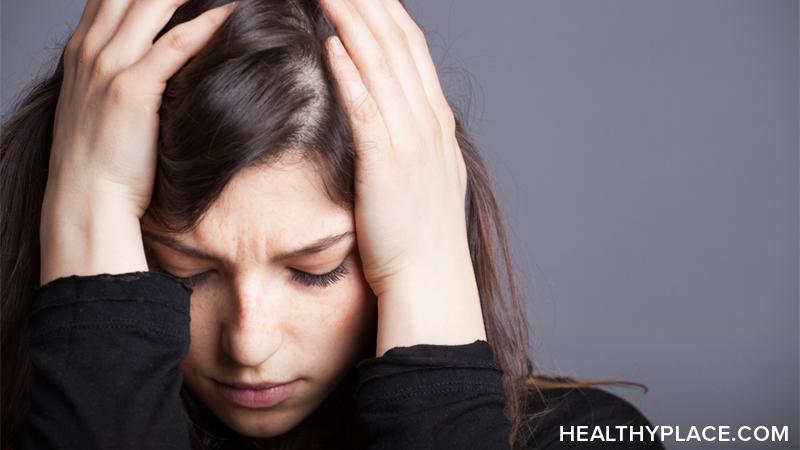Anxiety and Postpartum Depression

If you have postpartum depression (PPD), one of your symptoms might be anxiety. Anxiety can be overwhelming and severely interfere with everyday activities. I remember struggling to breathe as my heart raced and my stomach dropped simply because I was going to a community event. But if you're struggling with anxiety related to postpartum depression, there are some coping strategies that can help you get through it.
Ways to Deal with Postpartum Depression and Anxiety
Start with True Statements
When I would feel anxious or angry, I knew that I couldn't trust that my emotions were grounded in reality. These emotions were not caused by outside events but by my postpartum depression. But that didn't translate into feeling better. As a result, I needed to focus on something else, something I knew I could trust.
Starting with true statements was extremely helpful. I would repeat things that I knew were true, and that helped me find my footing in the reality that surrounded me. For example, I might tell myself, "Today is Thursday. I am at home. My husband loves me. I love my children." The statements weren't always the same, but they were always true. They helped me navigate the emotional storm and into the clarity of truth.
Focus on Breathing
It may sound trite, but breathing exercises really helped me. I would focus on taking slow, deep breaths. After a while, I would be calmer and ready to keep going with whatever I was doing. These deep breaths did not make the anxiety go away, but they helped me regulate my heart rate. They also gave me something to focus on, as opposed to worrying about all the hypothetical disasters that I had conjured up in my mind. Breathing was a physical way to combat the mental turmoil that my postpartum depression was causing.
Let It Sit for a While
When we are experiencing an unpleasant emotion or sensation, our automatic reaction is to avoid it or run away from it. We might try to drown it out with distractions or coping mechanisms. But there was great value in acknowledging the anxiety and sitting with it for a minute. I would notice how I felt, what physical symptoms were happening, and what I was experiencing. After a couple of minutes, I noticed the anxiety would improve. Even though it's counterintuitive, when we stop resisting the anxiety and let it settle, we redirect our brains to the present tense. When I left the terrifying possibilities of the future and focused on the present, it helped me calm down.
Anxiety is unpleasant, at best. At worst, it can be debilitating. But we don't have to let anxiety stop us from living life. Living with postpartum depression is a challenge, but it's better than merely existing or surviving with postpartum depression. Watch the video below to learn about flying with PPD-related anxiety.
APA Reference
Epperson, K.
(2022, February 10). Anxiety and Postpartum Depression, HealthyPlace. Retrieved
on 2026, March 4 from https://www.healthyplace.com/blogs/copingwithdepression/2022/2/anxiety-and-postpartum-depression
Author: Kelly Epperson
I was just having a conversation with a friend the other day about how important and empowering it is that we are now able to have honest and open communications about postpartum. I can only imagine how isolating and difficult it had to be for women in past years when this wasn't even diagnosed let alone openly discussed. Thank you for sharing your insight and guidance here.
Thank you for your thoughtful comment, Lizanne. I agree that having open and honest conversations is important. We are truly fortunate to live in a time when those conversations are happening.
